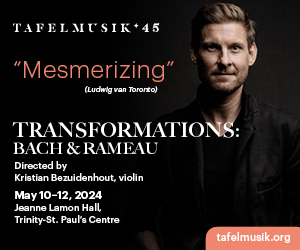“My apologies if you disagree with my viewpoint” began the distressed letter I received. “It’s not often that I send an email to everyone in my inbox, but I am angry and frightened at this most recent round of cuts made by the Federal Government to the Canada Coun-cil for the Arts…”
The letter included a link to an article by James Bradshaw in the September 24 Globe and Mail, as well as a link to a petition written by improvisational musician Nilan Perera. Nilan Perera’s petition already had 5,600 signatures at the time I clicked through: people in the wider music community are feeling crushed and betrayed.
“In a move to provide more money for Canadian artists to tour internationally and focus on commercially viable projects, the Tories have redirected funds that were used to help artists on the musical fringe record their work” Bradshaw wrote in his Globe piece. In effect, on July 31 this year, when the Conservative government renewed funding for the Canada Music Fund for five years, it “streamlined” the fund by eliminating two of seven categories, in order to beef up the funds for the remaining five. Gone entirely is the Canadian Musical Diversity category which provided grants of up to $20,000 for the recording and distribution of music which “places creativity, self-expression or experimentation above the demands and format expectations of the mainstream recording industry,” and has “significance beyond being just entertainment.”
Fringe music? No. As Nilan Perera’s petition states:
“This is the music that commercial artists mine for new sounds and examples of new forms. Its existence is as critical to music culture as medical research programmes in the universities are to the well-being of the public.”
Canadian saxophonist, clarinetist and composer Quinsin Nachoff proposed a similar analogy:
“I sat on one of the Sound Recording juries and it is a very competitive process. Only the very best are awarded funding, and only with a realistic budget to match. This is an extremely important grant that might be considered akin to that of a scientific research grant. I am cer-tain that the removal of this particular program will slow the growth of the creative and original music sector in Canada. Musicians will be forced to work longer at commercial work, teaching or working a day job to gain the necessary capital to self-produce their creative works. This will make Canadians less competitive in a market competing with Europeans who are supported by their governments or Americans who have a much larger market to support their product.
“It seems ignorant to remove this particular program as it is a necessary element to access other types of support: touring presupposes a product to tour. A recording is the essential building block and business card of the musician. The recordings I have made all led directly to tours, commissions, collaborations, and certainly affect my commercial endeavours: I am hired to teach (U of T and Humber College) be-cause of my experience ... as documented on recordings.
“Without a chance for the best Canadian creative music to be documented the cultural landscape will be staid; imitations of European or American art or pop culture. It is imperative we foster creativity and the aim of documenting our identity or quest for it.”
Pianist and music educator Mark Eisenman grimly commented:
“As an educator at York University in the field of jazz, I see the elimination of The Specialized Recording Grants as another nail in the coffin of jazz in Canada. There seems to be no reason to be teaching this music to the next generation of students. The hope of them getting any support for what is essentially a non-commercial music is looking more grim than ever. There is more to the value of things than just money, and the study of jazz and the discipline it takes is well worth the effort to teach it….”
Eisenman finished with an admonition:
“Have you ever looked at how many CDs you have received from Canadian jazz musicians that have the Canada Council logo? Check your CD library.. Now …imagine that any recording with a Canada Council logo never existed. Because in the future that’s the reality.”
Not healthy.
Here are links to the petition and Globe article. And there’s an ad on p.46 of our magazine for an October 26 “Wake” to mourn the cut funds, and celebrate the music. PDF Version Here



